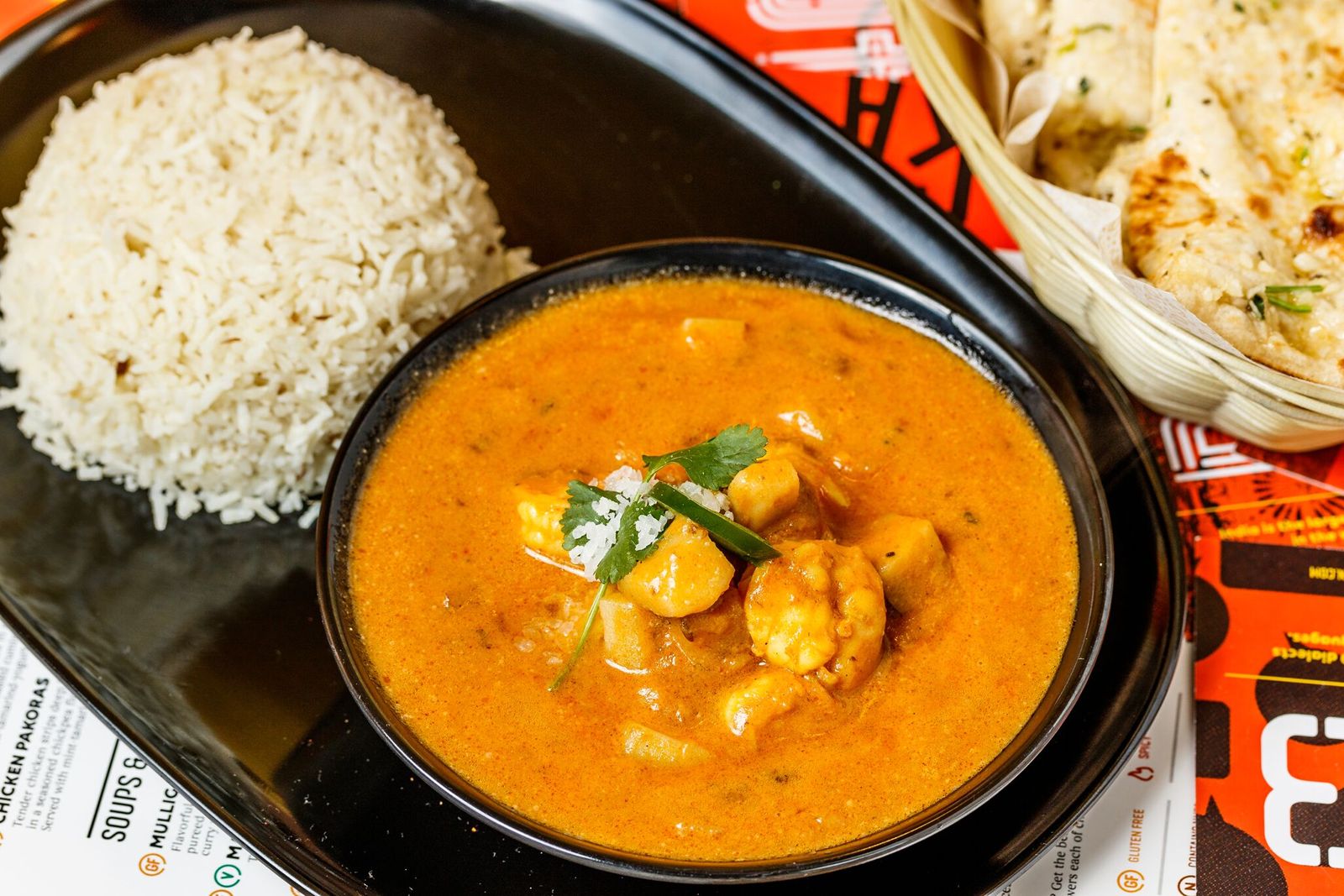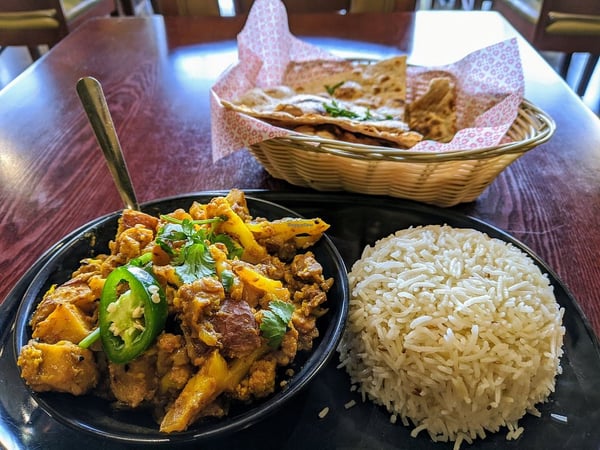Call Sales: +1 (833) 437-3835
Call Sales: +1 (833) 437-3835
Sarah Vancini | March 24, 2022 |

Tarka Indian Kitchen is a fast-casual restaurant with locations throughout Texas, with expansion to other states on the horizon. All meals are priced under $10 and prepared fresh to order onsite using high quality ingredients.
The menu includes savory dishes like korma, a rich cashew almond pistachio cream sauce with garlic naan, as well as more health-conscious dishes like Beyond Keema Curry, a minced meat curry made with Beyond Meat.
The CEO and Co-founder of Tarka, Tinku Saini, shares insights with the co-hosts of the Revel Systems® podcast—Restaurant and Retail Revel(ations)—into the importance of a strong technical foundation and interoperability within your tech stack.
Listen to the full interview here, or read on for Tinku's perspective on the restaurant's long-term expansion strategy.
An undeniable challenge for a growing brand, especially one that is founder-led and close to the concept's original vision, is how to maintain consistency and the quality that has made the brand successful even as it expands.
Tinku and his team of executives recognize that to-go orders and delivery will continue to be an essential offering for Tarka, and as the company seeks to grow outside of the state of Texas, special attention has been paid to the packaging, ingredients and physical footprint of new restaurant locations.
As well, the team aims to maintain fresh and delicious food while continuing to provide fast service nationwide. One major hurdle for this was finding the right outsourcing partner to make ingredients rather than continuing to make them from scratch on site. Recently Tarka has successfully outsourced sauce production without compromising their signature taste.
See Tinku's insights on the interoperability of your restaurant tech stack:
Demand for to-go orders is here to stay for Tarka and many other fast casual restaurants. Using Revel’s POS, Tarka has been able to seamlessly track their percentage of online, to-go and delivery orders.
Before the pandemic, Tarka’s off-premises orders were around 30% of their total sales. During the pandemic when all dining rooms were closed, to-go and delivery orders were 100% of business.
Now that dining rooms are open, to-go and delivery orders still comprise about 75% of orders for the brand. Due to this significant change in demand captured by their Revel POS platform, Tarka has made changes to its food packaging and physical footprint of stores.
Learn more about rising demand for delivery and other 2022 restaurant trends.
With long-term demand switching from in-house dining to pickup, Tarka needs to ensure their food traveled safely and was delivered ready-to-eat. This meant choosing the right packaging to keep food—like samosas—warm for optimal consumption. It also meant carefully selecting ingredients. For example, Tarka switched to thicker fries for their masala fries to avoid the appetizer becoming soggy on long car rides.
Regional expansion is on the roadmap for Tarka Indian Kitchen, and the vision is to, one day, become a national brand.
In light of the shifting demand toward to-go orders, the company plans to open more locations with smaller physical footprints. Traditionally Tarka restaurants require 400 square feet. New locations will likely be much smaller with less dining space. This will allow the company to save on rent expenses while creating more streamlined operations.
Many fast casual restaurants are investing in ghost kitchens, which take the shrinking physical footprint model to the extreme where restaurants offer zero dining space and only provide to-go and delivery options.
However, Tinku has concerns about opening ghost kitchens. Although he is not ruling the model out altogether, he wants to take time to observe results from other restaurants and flesh out a plan for Tarka.
“We want to focus on what we do well,” says Tinku. “If we enter into something new we want it to be well thought out and have a proven business model.”
As Tarka scales, one of their largest challenges is outsource ingredient production. Until recently, all ingredients at Tarka were prepared fresh on site.
However, preparing all ingredients on site is not a scalable option as the company expands nationwide.
 Tinku began vetting third-party vendors who could produce Tarka sauces offsite. Outsourcing sauce making is a valuable first step to outsourcing other ingredients. With a third-party vendor helping with this task, Tarka staff then have valuable extra bandwidth to prepare orders and focus on complicated dishes.
Tinku began vetting third-party vendors who could produce Tarka sauces offsite. Outsourcing sauce making is a valuable first step to outsourcing other ingredients. With a third-party vendor helping with this task, Tarka staff then have valuable extra bandwidth to prepare orders and focus on complicated dishes.
Fortunately, Tarka found success working with an Austin-based business.
This third-party vendor was able to successfully recreate the exact quality and taste of sauces because they scaled the exact process Tarka staff used to make the sauces in-house. The vendor observed how Tarka staff makes their sauces on site and used this as the basis of off-site production.
Today Tarka is able to mass-produce their sauces now that they’ve found the right partner. Since working with the new vendor Tarka has significantly reduced operational complexity. They are now able to more seriously consider future business models like franchising and virtual kitchens.
As preferences change to favor to-go and delivery options, it’s important that fast casual restaurants like Tarka leverage their POS platform to adjust for this shifting demand.
Tarka uses Revel POS to collect insights about demand for to-go, delivery and dine-in services. This data allows them to create long-term strategic plans about their footprint expansion and possibilities of investing in franchising in the future.
Revel POS also allows the Tarka team to keep track of inventory and production to better work with third party vendors who can prepare ingredients as the company scales.
To learn more about how your restaurant could benefit from Revel’s cloud-native POS platform, schedule a demo today.